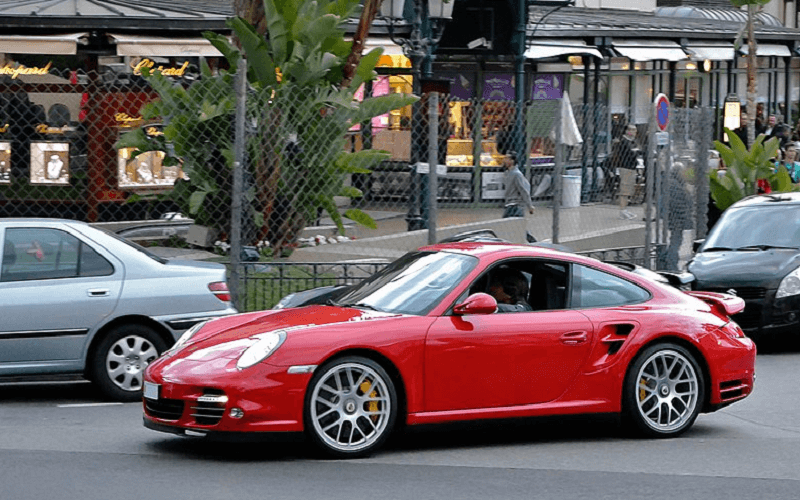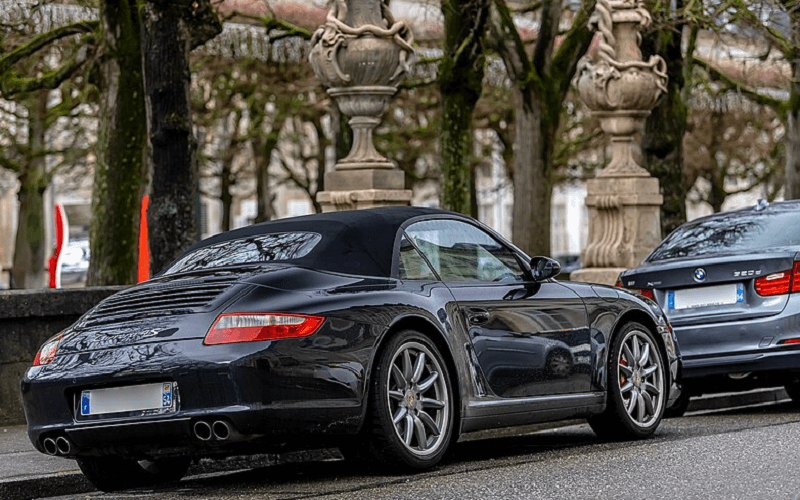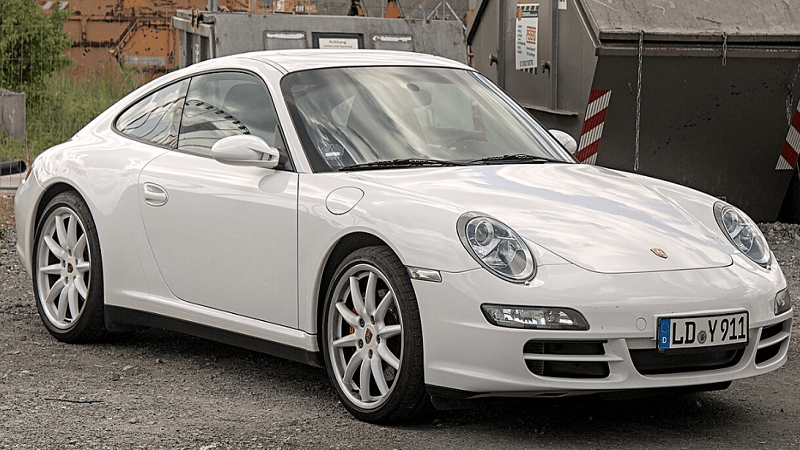Porsche 997 Years To Avoid – If you’re dreaming of cruising down the open road in a Porsche 997, it’s essential to navigate wisely through the model years. While this rear-engine beauty is renowned for its sleek design and thrilling performance, not all years are created equal.
Yes, there are indeed Porsche 997 years to avoid, and we’re here to steer you clear of any potential bumps in the road.
The Porsche 997, a modern iteration of the iconic Porsche 911, offers a blend of elegance and power that’s hard to resist. But amidst its allure, there are a few model years that fall short of the mark.
We’ve sifted through the data to pinpoint the Porsche 997 years to avoid, ensuring your journey is smooth and exhilarating from start to finish.
So, what years should you keep off your radar?

While the Porsche 997 lineup spans several years, our research suggests steering clear of the 2004, 2005, 2006, 2009, and 2011 models.
These particular years have been associated with issues ranging from engine reliability to cooling system concerns and even paint quality.
By bypassing these troublesome years, you can safeguard your investment and enjoy the Porsche experience to its fullest.
So, if you’re asking yourself, “What year 997 to avoid?” or wondering about the worst years to steer clear of, look no further.
Porsche 997 Years To Avoid
Before you rev up the engine and hit the road, it’s crucial to steer clear of potential pitfalls by understanding which model years to avoid.
We’ll explore the Porsche 997 years to avoid, shedding light on common issues and offering insights to help you make an informed decision.
First introduced in 2004, the Porsche 997 captivated automotive enthusiasts with its timeless design and exhilarating performance.
According to data from carcomplaints.com, several model years of the Porsche 997 stand out for their reported problems and customer complaints.
Among these, the following years have garnered attention as ones to approach with caution:
- 2004 Porsche 997
- 2005 Porsche 997
- 2006 Porsche 997
- 2009 Porsche 997
- 2011 Porsche 997
One recurring issue across these troublesome Porsche 997 years revolves around engine performance. Many owners reported instances of engine stalling or excessive fuel consumption, detracting from the overall driving experience.
Each of the highlighted model years comes with its unique set of challenges, further underscoring the importance of informed decision-making:
2009 Porsche 997
The 2009 model year the Porsche 997 encountered notable issues with engine reliability and cooling system functionality.
Owners reported instances of engine malfunctions and cooling system failures, raising concerns about performance and safety, particularly during high-speed driving.
2011 Porsche 997
In the case of the 2011 Porsche 997, electrical issues emerged as a prominent concern. Many drivers experienced premature battery failure and other electrical system malfunctions, posing risks on the road and necessitating expensive repairs.
These issues underscore the importance of thorough inspections and maintenance when considering a 2011 model.
By avoiding the problematic years highlighted in this guide and prioritizing reliability and performance, you can embark on your journey with confidence and peace of mind.
Porsche 997 Best Years
Embarking on the journey to Porsche ownership is an exhilarating experience, but it requires careful consideration to ensure you make the right choice.
With a range of model years available for the Porsche 997, knowing which ones offer the best value and reliability is paramount.
In this comprehensive guide, we’ll explore the top picks for the Porsche 997, helping you navigate the road to automotive excellence with confidence.
While some model years of the Porsche 997 may give you pause, others shine brightly as beacons of reliability and performance.

According to data from carcomplaints.com, the following years stand out as the best choices for prospective buyers:
- 2007 Porsche 997
- 2008 Porsche 997
- 2010 Porsche 997
These model years represent the pinnacle of Porsche engineering, offering a balance of style, performance, and reliability that few can match.
With fewer customer complaints and a stellar track record, these middle-of-the-road years for the Porsche 997 are sure to impress even the most discerning drivers.
What Sets These Years Apart
What makes the 2007, 2008, and 2010 Porsche 997 models stand out from the crowd? It’s more than just their sleek design and exhilarating performance—it’s their reputation for reliability and minimal issues on the road.
While no car is without its flaws, these best years for the Porsche 997 boast fewer customer complaints compared to their counterparts.
Despite their sterling reputation, it’s essential to acknowledge that even the best years of the Porsche 997 aren’t immune to occasional issues.
Engine faults, in particular, remain a potential concern, with some issues arising from user behavior or well-intentioned repairs gone awry.
With nearly a decade of production spanning from 2004 to 2013, the Porsche 997 offers a wealth of options for enthusiasts seeking the ultimate driving experience.
If reliability and performance are at the top of your priority list, look no further than the 2007, 2008, and 2010 Porsche 997 models. With their stellar track record and minimal customer complaints, these years promise a driving experience that’s as exhilarating as it is reliable.
The Common Porsche 997 Problems: What Owners Need to Know
The Porsche 997 is hailed as a paragon of automotive engineering, blending performance, style, and reliability in a sleek package. However, like any vehicle, it’s not immune to occasional issues that can impact the driving experience.
Let’s explore the common Porsche 997 problems that owners may encounter, offering insights to help you navigate the road with confidence.
Despite its reputation for reliability, the Porsche 997 is not without its share of issues.

Here are some of the most common problems reported by owners:
IMS Bearing Troubles
One of the most notorious issues associated with the Porsche 997 is IMS (Intermediate Shaft) bearing failure.
In the earliest versions of this model, the IMS bearing was improperly installed, leading to potential engine damage and costly repairs.
While many vehicles have had the IMS bearing rectified through recalls or aftermarket solutions, prospective buyers need to inquire about the status of this component.
Over-Revving
Another issue that can plague the Porsche 997 is over-revving, often resulting from aggressive driving or inexperienced owners.
Over-revving the engine can exceed the manufacturer’s recommended RPM limits, potentially voiding warranties and causing long-term damage to the vehicle’s internals.
Drivers must exercise caution and adhere to safe driving practices to avoid this problem.
Poor Service History
When purchasing a used Porsche 997, buyers should pay close attention to the vehicle’s service history.
While Porsche mechanics are typically knowledgeable and skilled, instances of poor service or inadequate maintenance may arise, leading to unforeseen issues down the line.
Thoroughly reviewing the service records and performing a comprehensive inspection can help mitigate this risk.
Faulty Alternator Cables
Some Porsche 997 owners have reported issues with faulty alternator cables, which can lead to battery troubles and reduced electrical system performance.
A failing alternator cable can result in intermittent charging, causing the battery to drain prematurely and potentially leaving the vehicle stranded.
Regular inspections and proactive maintenance can help identify and address this issue before it escalates.
Broken Radiators
Leaking radiators are another common problem encountered by Porsche 997 owners. Over time, the plastic end tanks of the radiator can deteriorate, leading to coolant leaks and overheating issues.
Neglecting to address a broken radiator can result in engine damage and costly repairs. Regular coolant system inspections and timely radiator replacement can help prevent this problem from occurring.
By staying informed about common problems and conducting regular maintenance, drivers can enjoy the thrill of Porsche ownership without undue stress or unexpected setbacks.
Are Porsche 997s Expensive To Maintain?
According to data from motorhills.com, the maintenance costs for a Porsche 997 can vary widely, ranging from approximately $350 for basic upkeep to as much as $8,000 for comprehensive maintenance.
While owning a Porsche 997 can be a costly endeavor, especially when considering used models, regular maintenance is crucial to keeping the vehicle in top condition.
While unexpected breakdowns may not occur frequently, when they do, they can be significant. Additionally, sourcing parts for the Porsche 997, which may need to be imported from other countries, can further contribute to maintenance expenses.
To ensure the longevity and performance of your Porsche 997, it’s essential to schedule regular visits to the repair shop and address any minor issues before they escalate into larger problems.
Is The Porsche 997 Worth It?
If you’re in the market for a sleek, sophisticated sports car, the Porsche 997 is certainly worth considering. While owning a Porsche comes with inherent risks, particularly in terms of potential repair costs, there are several dependable options available within the 997 lineup.
To maximize your investment and minimize the risk of unexpected expenses, it’s advisable to opt for one of the most reliable models within the 997 range.
Are Porsche 997s Generally Reliable?
According to insights from pcarwise.com, the Porsche 997 is regarded as a reliable choice within the realm of sports cars. Across various model years, the 997 performs well in terms of reliability, requiring minimal user intervention for repairs.
While it’s essential to acknowledge that no vehicle is without its flaws, the Porsche 997 boasts commendable performance across all aspects, making it a desirable option for enthusiasts seeking a fast and dependable sports car.
With its timeless design and improvements over previous iterations, the Porsche 997 offers an enticing blend of style and performance that few competitors can match.
Conclusion
Navigating the realm of Porsche 997 ownership requires careful consideration of various factors, from maintenance costs to overall reliability.
The Porsche 997 can be expensive to maintain, particularly when unforeseen issues arise, diligent upkeep and regular visits to the repair shop can help mitigate potential expenses.
In evaluating whether the Porsche 997 is worth the investment, it’s essential to weigh the allure of its sleek design and exhilarating performance against the potential risks of costly repairs.
Fortunately, the Porsche 997 is generally regarded as a reliable choice among sports cars, with minimal user intervention required for upkeep.
However, prospective buyers should still exercise caution and opt for the most reliable models within the 997 lineup to ensure a satisfying ownership experience.
By making informed choices and prioritizing reliability, enthusiasts can enjoy the thrill of driving a Porsche 997 without undue stress or unexpected setbacks. So, whether you’re exploring the best and worst years of the Porsche 997, remember to prioritize reliability and performance above all else.
Related Articles:
- Porsche 911 Years To Avoid
- Porsche Macan Years To Avoid
- Porsche Cayenne Years To Avoid
- Porsche Panamera Years To Avoid
- Most Expensive Porsche
- Most Reliable Porsche
- Porsche Cayman Years To Avoid
- Porsche 996 Years To Avoid
- Porsche Boxster Years To Avoid